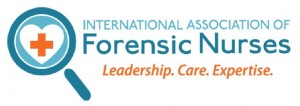 The International Association of Forensic Nurses joins in the celebration of Forensic Nurses Week, from Nov. 11 to 15, which seeks to highlight the important work and contribution made by practitioners in the field. The nurses provide exceptional care every day to men, women, and children who have experienced trauma.
The International Association of Forensic Nurses joins in the celebration of Forensic Nurses Week, from Nov. 11 to 15, which seeks to highlight the important work and contribution made by practitioners in the field. The nurses provide exceptional care every day to men, women, and children who have experienced trauma.
“Most people who enter the profession of nursing do so wanting to help others. They are nurses with great skill and courage and they treat their patients objectively but with caring and compassion,” said Polly Campbell, RN, BS, BA, president of the association’s board of directors.
A forensic nurse provides specialized care for patients who are victims and/or suspects and have experienced injury (both intentional and unintentional). These healthcare professionals are nurses first, but have knowledge of the legal system and expertise in forensic science. After meeting a patient’s medical and psychosocial needs, a forensic nurse often collects evidence, provides medical testimony in court, and consults with legal authorities. The International Association of Forensic Nurses has more than 3,000 members from 22 countries.
Forensic nursing is the fastest growing nursing subspecialty. Forensic nurses use their advanced education and training to provide nursing care, collect evidence and provide consultation in a variety of areas including: sexual assault, intimate partner violence, child abuse and neglect, death investigation, elder mistreatment, corrections, emergency services, mass disasters, psychiatric/mental health and public health.
Studies show a strong link between violence and short- and long-term healthcare issues, with patients who experience violence or abuse accessing the healthcare system at least twice as frequently as those without a history.
“Forensic nursing is an exceptional field that deserves much more attention, not only because of the impact it can have in a legal setting, but more importantly, because of the good that is done for patients at the bedside, and their families and communities,” said Carey Goryl, MSW, CAE, chief executive officer of the International Association of Forensic Nurses.